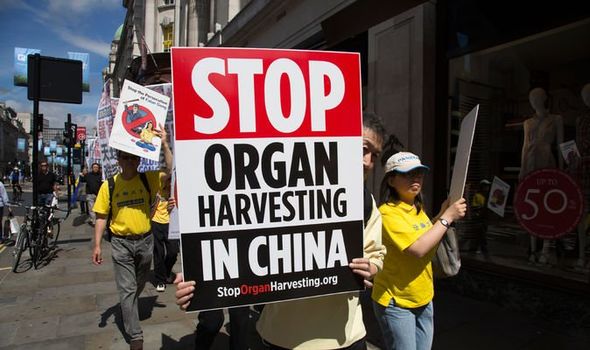United Nations human rights experts have expressed extreme concern over reports of alleged “organ harvesting” by Chinese authorities targeting minorities.
The experts said Sunday they received credible information that Chinese officials are subjecting detainees from ethnic, linguistic or religious minorities to blood tests and organ examinations such as ultrasound and x-rays, without their informed consent.
The results of the examinations are reportedly being registered in a database of living organ sources that facilitates organ allocation.
The scheme only targets detained Falun Gong practitioners, Uyghurs, Tibetans, Muslims and Christians. Other prisoners are not included.
“Forced organ harvesting in China appears to be targeting specific ethnic, linguistic or religious minorities held in detention, often without being explained the reasons for arrest or given arrest warrants, at different locations,” the experts said. “We are deeply concerned by reports of discriminatory treatment of the prisoners or detainees based on their ethnicity and religion or belief.
“According to the allegations received, the most common organs removed from the prisoners are reportedly hearts, kidneys, livers, corneas and, less commonly, parts of livers. This form of trafficking with a medical nature allegedly involves health sector professionals, including surgeons, anaesthetists and other medical specialists.”
The experts have already raised the issue with Beijing but there has been no clear action on part of the Chinese authorities, giving way to the suspicion that the government is facilitating the gross human rights violation.
The Chinese government refuses to provide data such as waiting times for organ allocation, or information on the sources of organs, allowing organ traffickers to get away with their crimes.
Another UN Human Rights mechanism has also highlighted concerns about the practice of removing organs from prisoners of a certain religious minority.
Concern remains at the lack of independent oversight as to whether the consent to donation and organ allocation is effectively given by prisoners or detainees. It is also reported that families of deceased detainees and prisoners are prevented from claiming their bodies, they said.
“Despite the gradual development of a voluntary organ donation system, information continues to emerge regarding serious human rights violations in the procurement of organs for transplants in China,” the UN experts said.


















